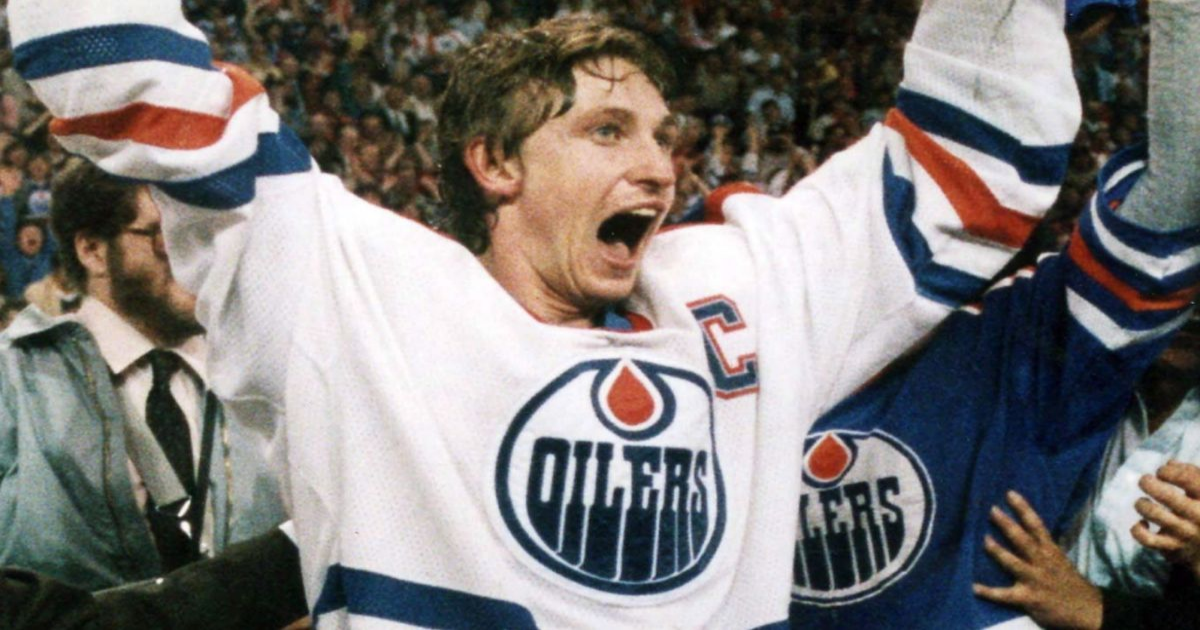Few teams in NHL history carry the weight of legacy quite like the Edmonton Oilers. With a dynasty built in the ’80s and a roster that once redefined greatness, this Canadian franchise remains a symbol of excellence—and unfinished business.
From the electric rise of a young Wayne Gretzky to the thunderous cheers of the old Northlands Coliseum, the Oilers carved out an era that felt unstoppable. But dynasties fade, and the chase for new glory began.
Now, decades later, a new wave of talent and a fiercely loyal fanbase fuel the fire. As they push toward another shot at hockey’s ultimate prize, one question lingers: Can history repeat itself in the City of Champions?
The golden era of the Oilers
There was a time when stepping onto the ice against the Edmonton Oilers felt like a death sentence for opposing teams. The 1980s weren’t just good to Edmonton—they were downright golden.
Between 1984 and 1990, the Oilers didn’t just win; they dominated, clinching five Stanley Cup titles in a mere seven-year span. It was a dynasty fueled by pure offensive firepower and a locker room bursting with generational talent.
Glen Sather, the mastermind behind the bench, knew how to let his players fly while keeping a tight grip on the game plan. His coaching style allowed creativity to flourish, especially in a time when the NHL was still largely defensive and rigid.
This era wasn’t just a chapter in franchise history, it was a transformation of the sport itself. Speed, skill and swagger became the new gold standard, and it all started in Edmonton.
List of Oilers’ Stanley Cup wins
The Stanley Cup wins didn’t happen by accident, they were built on layers of trust, chemistry, and relentless competition. Here’s a closer look at each historic championship year:
1984: Edmonton dethrones the four-time defending champions, the New York Islanders, in five games. It wasn’t just a win—it was a changing of the guard. The dynasty had officially begun.
1985: A repeat performance, this time against the Philadelphia Flyers. Gretzky notched 47 points in 18 playoff games—a record that still stands. The Oilers were making hockey history, and they made it look easy.
1987: After falling short in ’86, the Oilers returned with a vengeance. They again faced the Flyers in a tight seven-game series, with goalie Grant Fuhr playing out of his mind. Edmonton sealed their third title in front of a roaring home crowd.
1988: The Bruins never stood a chance. In a surreal series that included a power outage at Boston Garden, the Oilers completed a dominant sweep. It was also Gretzky’s final Cup with Edmonton—a bittersweet goodbye.
1990: With The Great One now in L.A., many doubted Edmonton could still win it all. But led by Mark Messier and coach John Muckler, the team proved they were more than just one man. They defeated Boston again to claim their fifth Stanley Cup.
Key players and coaches
Any great team needs its icons and the Oilers had more than their fair share. Wayne Gretzky, of course, stands at the center of it all. His vision, his creativity, his sheer dominance—it all changed the way the game was played. But he wasn’t alone.
Mark Messier was the heartbeat of the team: fierce, vocal and unrelenting. Known for elevating his teammates and delivering when it mattered most, he later became the only player to captain two different teams to Stanley Cup victories. Then there was Jari Kurri, Gretzky’s Finnish counterpart, who piled up goals with surgical precision.
On the blue line, defenseman Charlie Huddy brought consistency and intelligence, while Paul Coffey redefined what it meant to be an offensive defenseman. And in net, Grant Fuhr was a wall—quick, clutch and cool under pressure.
Glen Sather deserves his place on the Mount Rushmore of coaches. He didn’t just win—he built a machine. Sather’s ability to blend egos, nurture young stars, and maintain a winning culture is a masterclass in hockey management.
